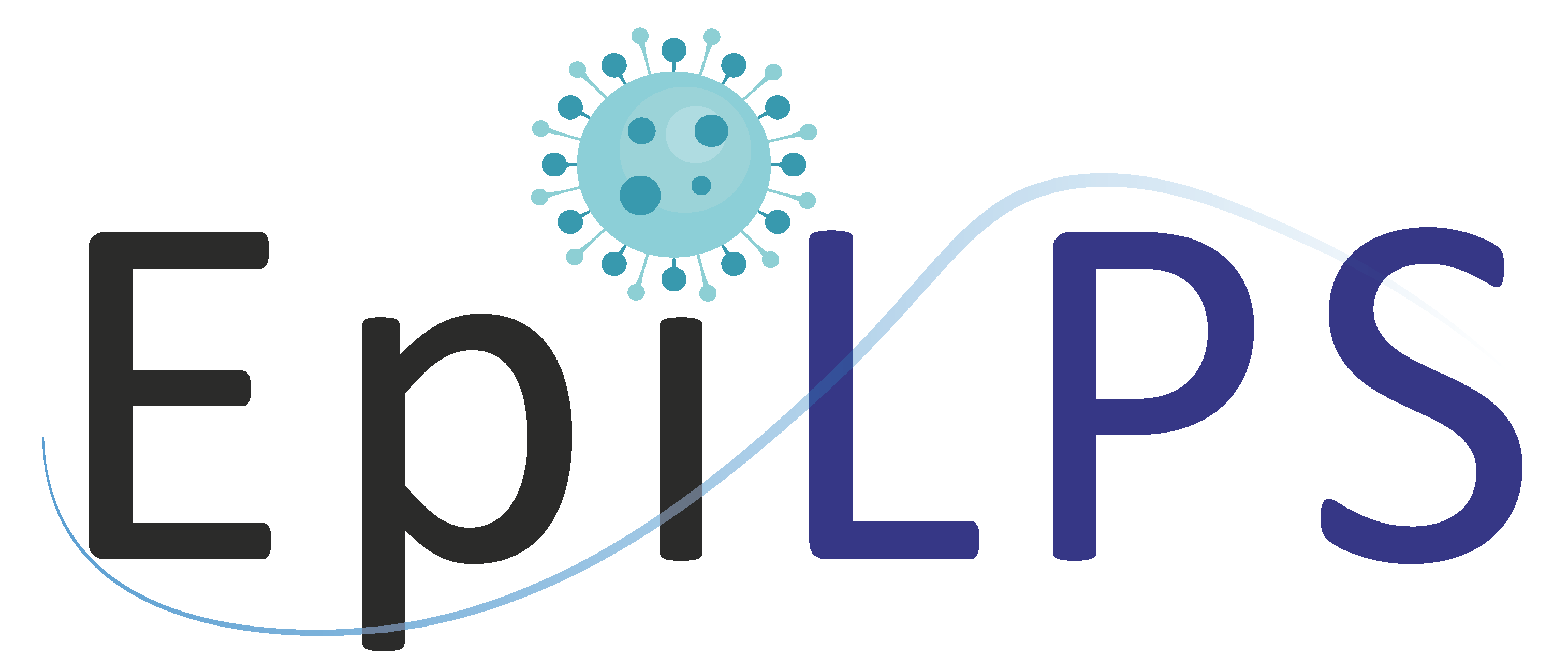
EpiLPS (an acronym for
Epidemiological modeling with
Laplacian-P-Splines)
is a tool aiming at exploring the synergy between Laplace approximations
and Bayesian P-splines to reach state-of-the art methodological
advancements in statistical modeling of infectious diseases. EpiLPS grew
up originally as a method to estimate the time-varying reproduction
number [1] Gressani et al. (2022). Recent extensions to
nowcasting ([2] Sumalinab et al. 2024) and to estimation of
incubation times ([3] Gressani et al. 2024) transformed EpiLPS into a
small inferential ecosystem of statistical methods that deliver fast and
accurate estimates of key epidemiological characteristics.
The aim of this website is to give a short overview of the
functionalities of EpiLPS, mainly through documentation and vignettes.
Recent updates will be added to the in-development version of the
package available on this GitHub repository. The stable version can be found
on CRAN.



Estimation of incubation times
New methodology to estimate the distribution of incubation times in a
semi-parametric way. A
small vignette illustrates
how to use the underlying routines. Article available open access in the
American Journal of Epidemiology
10.1093/aje/kwae192.
October 2024

EpiLPS 1.3.0 available on CRAN
Version 1.3.0 of EpiLPS available on CRAN.
October 2024

Nowcasting the reproduction number
The EpiLPS package is ready to nowcast the reproduction number. Read this vignette to get started. Related paper is available
open access in Epidemiology
10.1097/ede.0000000000001744.
October 2024

Nowcasting available in EpiLPS
A new routine for nowcasting has been added to EpiLPS.
Discover what you can do with it here. You can also read our recent article available open access in the Journal of Computational and Graphical Statistics 10.1080/10618600.2024.2395414.
October 2024
Associated literature
[1] Gressani O, Wallinga J, Althaus CL, Hens N, Faes C (2022) EpiLPS:
A fast and flexible Bayesian tool for estimation of the time-varying
reproduction number. PLoS Comput Biol 18(10): e1010618. 10.1371/journal.pcbi.1010618
[2] Sumalinab, B., Gressani, O., Hens, N. and Faes, C. (2024).
Bayesian nowcasting with Laplacian-P-splines. Journal of
Computational and Graphical Statistics. 10.1080/10618600.2024.2395414
[3] Gressani, O., Torneri, A., Hens, N. and Faes, C. (2024). Flexible
Bayesian estimation of incubation times. American Journal of
Epidemiology. 10.1093/aje/kwae192
[4] Sumalinab, B., Gressani, O., Hens, N. and Faes, C. (2024). An
efficient approach to nowcasting the time-varying reproduction number.
Epidemiology, 35(4):512-516. 10.1097/ede.0000000000001744

15K +
Total package downloads

3300 +
Related article views




